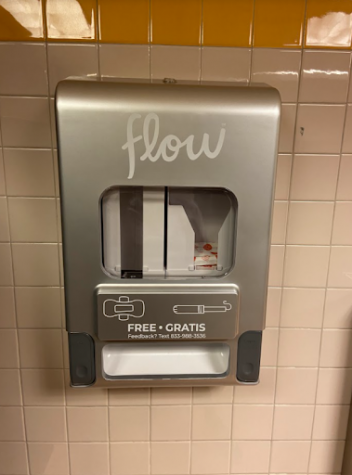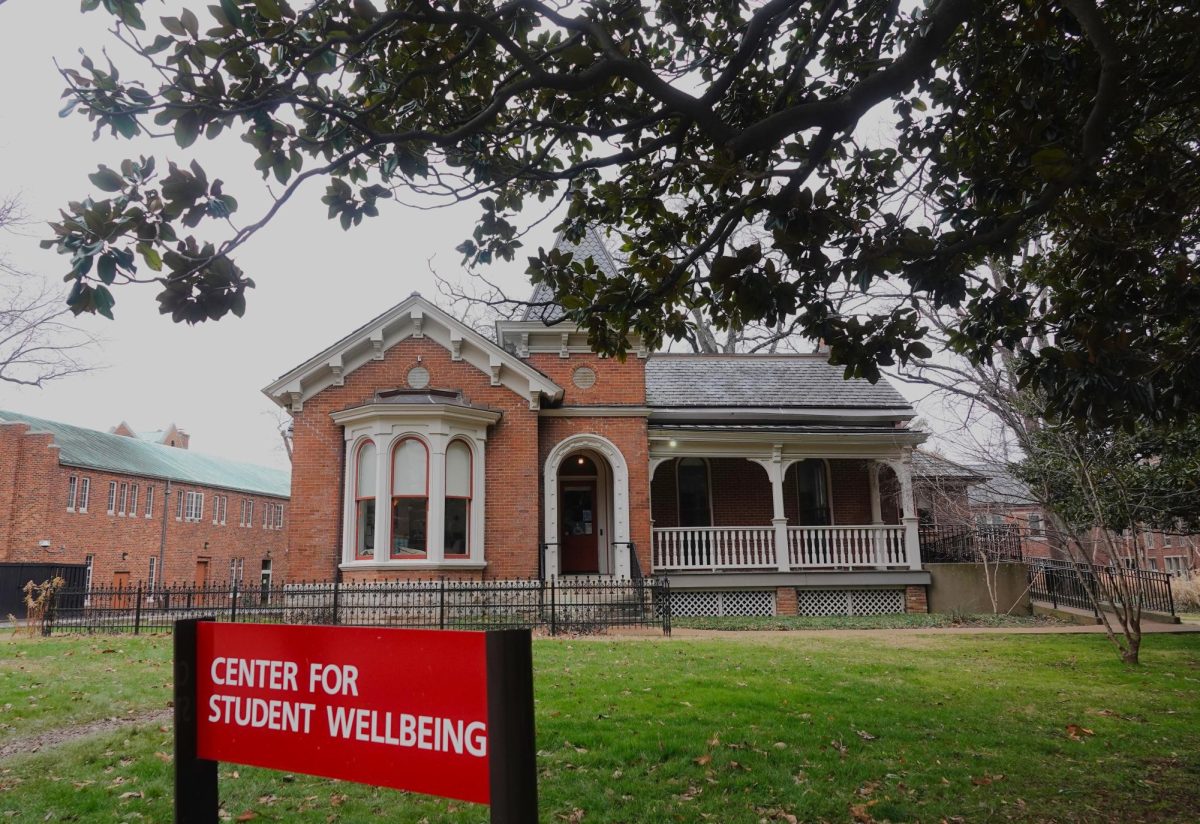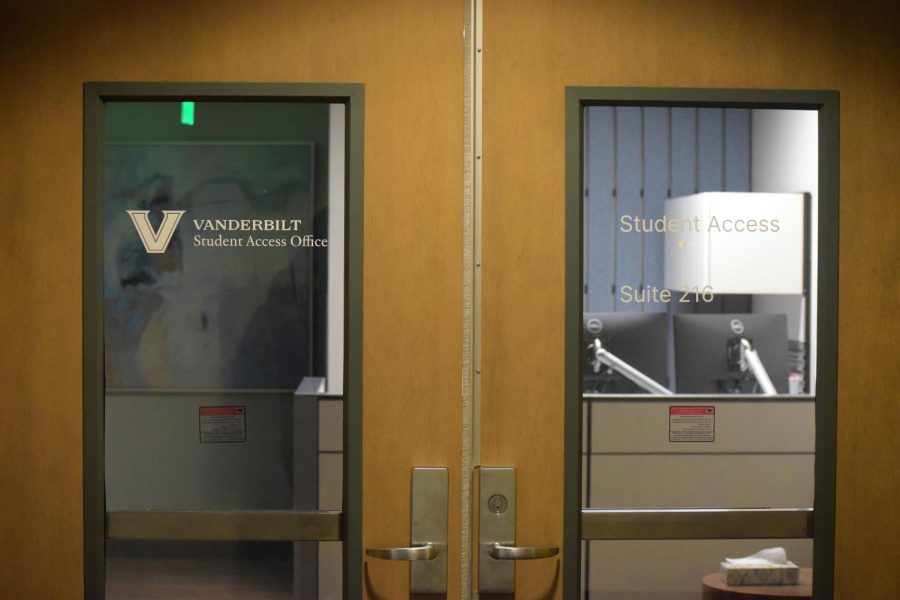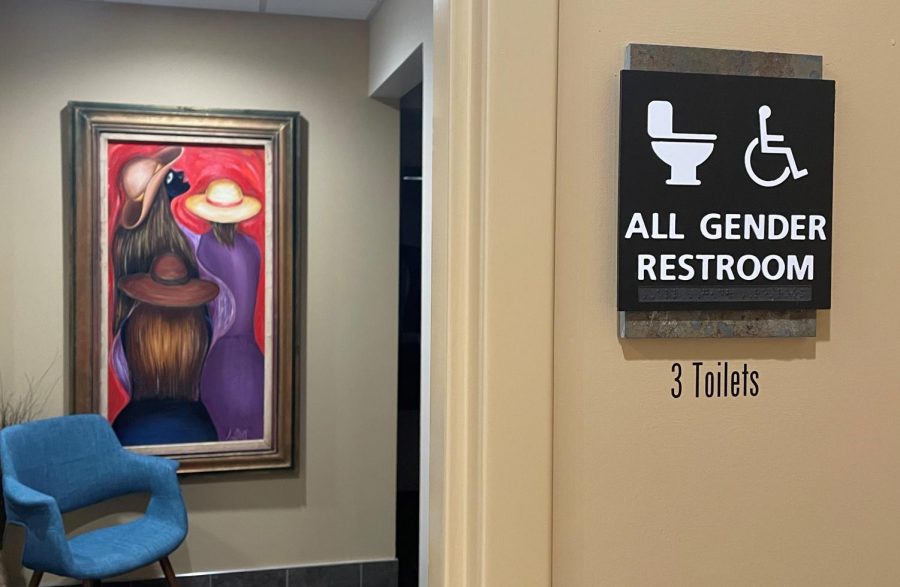On average, individuals who menstruate spend $6,360 on menstrual products during their lifetime, a study by OnePoll, conducted on behalf of Intimina, found.
Indeed, menstruation is a pricey guest, made all the more difficult with issues of affordability and access. Starting on Sept. 3, Vanderbilt Student Government (VSG) began to implement the first tier of its new initiative to provide free menstrual products in select bathrooms around campus. The dispensers were installed in various female, gender neutral and male bathrooms for maximum inclusivity and student reach.
Now, students can walk into select bathrooms in Sarratt Student Center, Buttrick Hall or the Commons Center among other locations around campus and choose from pads and tampons, free of charge. With the semester at its halfway point, we decided to check in with students to hear their thoughts on the new dispensers.
Sophomore Ruth Aklilu noted that there are many benefits to the free menstrual products.
“I especially like the convenience of it and the ease of access. I also love the fact that they are cotton products which means that they are healthier and better for the environment as well,” Aklilu said. “The only downside that I see is that it’s one-size-fits-all. I wish that there was more variety for different students with different flow types.”
Currently, the Aunt Flow dispensers provide only one size of pads—with wings and red cardboard packaging—and a single size of tampons with cardboard applicators and white packaging. Commercial menstruation products are known to come in a wide variety of sizing and personalization options to cater to as many flow types as possible, and the limited offering of the initiative may alienate some students that feel the provided products are not adequate for their flow. However, seeing as this is only the first tier of the implementation, this oversight could perhaps be rectified in the forthcoming third tier, where any “gaps in coverage” will be addressed, per the VSG proposal. Student concerns also extended to the accessibility of the products in various campus buildings.

“I like the menstrual products in the bathrooms,”senior Breeann Wallace said. “I actually had to use some this past week and was pleasantly surprised. It made me consider getting cotton ones myself. I know they’re not available in McGill—they’re available in the academic buildings—but if they could be available in more of the residential halls, that would be great.”
Fortunately, this limitation will not last for long. The second tier of the initiative plans to expand its reach to the Divinity School, Alumni Hall, Peabody Library, The Wond’ry, Wilson Hall, Student Life Center, Kissam, E. Bronson Ingram and Zeppos, per the proposal.
Notably, the menstrual products are available in some of the men’s bathrooms as well as the women’s. Though not all students interviewed had a strong opinion on the subject, several were proud of the initiative’s inclusive mindset and role in increasing convenience for the student body unilaterally.
“I think it’s really cool that it’s accessible to all genders because it’s usually something that you only find in a woman’s bathroom,” first-year Zander Shwartz said. “The fact that it’s in a man’s bathroom means that those who identify as non-binary but still use the men’s room have access to it. Even if cis men don’t use it, it’s still good that it’s there.”
Other students also lauded the initiative’s inclusivity.
“I think that it’s great that there are menstrual products in the men’s bathroom,” first-year Lydia Rasetti said. “If someone identifies as male and still has a period it’s important to have access to that. It’s important that everyone feels comfortable in their facilities.”
This positive feedback demonstrates the initiative’s success at embracing the student diversity present on campus and making the menstrual products accessible to everyone who may need them.
As this rollout is only the first tier of the three step initiative, the permanence of the program is not guaranteed. To some, free menstruation products seem like a necessary no-brainer, while others are not as convinced of their necessity. So how important is it that Aunt Flow stays?
“It’s a good thing for sure, but it’s also really eye-opening,” sophomore Gayatri Aluri said in a message to The Hustler.
“I never realized how much we missed out on what should’ve been provided for us all along. Menstruation is as natural as blinking, so as long as taboos against reproduction exist, the dispensers are just a step in the right direction, not a solution.”
Vanderbilt strives to be a diverse and accommodating institution, and this proposal from VSG aids in accomplishing that. As students communicated, the menstrual product initiative is working ethically to close gaps in student experiences on campus and address problems of accessibility that could otherwise prove detrimental to progress—but a few tweaks are needed for the initiative to reach its full potential.













